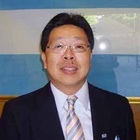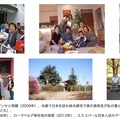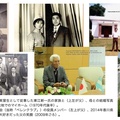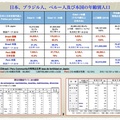At the Society for Latin American Studies held at Aichi Prefectural University in June this year1, Yukako Nagamura, a member of the Graduate School of Sophia University, gave an interesting presentation on "Positioning and career strategies of Japanese politicians under the Brazilian military regime" 2 . According to her presentation, after the war, second and third generation Japanese politicians entered the political world one after another, promising to improve the status and advance in society of Japanese people in Brazil, and in local electoral districts with a large number of Japanese voters, some candidates were elected with only votes from Japanese voters. However, at the state and federal levels, it is impossible to win without gaining the votes of non-Japanese voters, and reelection requires name recognition and achievements, so it is important for Japanese candidates to gain support from a wide range of people. As a result, Japanese candidates have gradually come to strongly appeal to the fact that they are involved in politics not only for the Japanese community but also for Brazil.
In fact, around the 1970s, Japanese American candidates supported by the older Issei and Nisei were elected, but in the 1980s, Japanese American candidates who reflected the will of the Japanese American community were no longer necessarily elected. This was because the younger generation began to support their own ideas and ideologies, as well as more progressive political parties and organizations, and Japanese American candidates could no longer win unless they made pledges that could be shared by the local community and the people of the state.
Naturally, some Japanese leaders in the small Japanese community mistakenly believe that if a Japanese candidate wins, benefits will automatically flow to the Japanese community, but this is not the case. Rather, the emergence of a Japanese politician is a golden opportunity to further enrich society, and Japanese politicians are expected to be the voices of the entire society, not just the Japanese community, but also as representatives of minorities.3
The Japanese communities in Brazil, Peru, and Argentina have a history of over 100 years. The current generation is already the third to fourth generation of postwar immigrants, and they are no longer bound by the same ties as before. Therefore, looking at recent trends, the younger generation of Japanese people, who have a strong sense of individual goals, often get involved in political activities in their own neighborhoods, such as activities that represent their goals (such as cleaning up local areas and park maintenance), regardless of whether they are in the ruling or opposition party. Of course, in national elections, those who participate in activities with mainstream political parties are more likely to be given good positions after being elected, but in Latin America, it is possible to get involved in politics no matter what industry you are in.
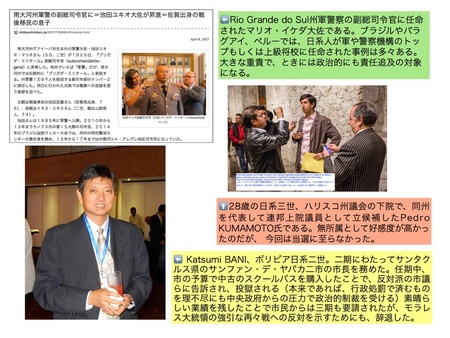
In addition, due to the demographic makeup of society and tolerance towards immigrants, it has become much easier than ever before for Japanese descendants to participate in social and political activities in some form. In the case of Argentina, children of Japanese immigrants in Paraguay and Bolivia hold political and public positions in local governments, and nationality is rarely an issue. Recently, an increasing number of Japanese descendants from neighboring countries are involved in social activities of non-governmental organizations (NGOs) and in municipal politics, and those with a high level of expertise and international experience are sometimes approached by central government agencies, regardless of their nationality.
Furthermore, while in the past there seemed to be many Nikkei who leaned to the ruling party, this tendency is no longer the case. With trust in and the functioning of political parties in each country being shaken, it is possible to enter politics through civic activities or as a member of a politician's staff. In fact, one can be an honorable political actor even as an aide or special advisor to the president or minister. I remember a senior Nikkei second generation citizen who knows the fragility, fear, and meanness of South America saying that Nikkei are good at behind-the-scenes maneuvering and balancing interests, so they can best demonstrate their abilities by not being in the public eye. In politics, the posts most suited to Nikkei may be staff officers or deputies.
Politics requires preparation and coordination, so personal connections and virtue are important. In South America, where injustice and corruption are rampant, the modesty that is a value of Japanese people can sometimes be a disadvantage. However, politics cannot be done with politeness, diligence, and seriousness alone. Even in the legal system, if you are involved in a major case as a prosecutor or judge, you cannot avoid being involved in politics, and in that sense, the social environment is different from that of Japanese politicians who have been active in the United States. In Latin America, even if you are treated as a hero for a while, one incident often triggers you to be treated unreasonably and without basis and branded as a traitor or incompetent. Because there are so many problems with the separation of powers and various systems, there is a risk that politics will become quite dirty no matter what the situation is4 . However, I would like Japanese politicians to be active in the political world while maintaining their values as Japanese people.
According to Nagamura's research presentation at the Latin American Studies Association mentioned at the beginning, in Brazil and other Latin American countries, there will likely be opportunities for Nikkei people to become involved in politics in various fields, regardless of whether they are in the ruling or opposition party. There are already many Nikkei people active as administrative officials in various fields, so it is hoped that some of them will eventually enter politics in a way that is different from the existing political parties that are not functioning very well.
Notes:
1. The 39th Annual Meeting of the Japan Society for Latin American Studies
2. " Jinbunken Study Group - Nagamura Yukako gives research presentation - Discusses the relationship between politics and Japanese language newspapers " (Nikkei Shimbun, June 20, 2015)
3. Brazil has the world's largest Japanese community, with a population of 1.8 million Japanese people, which is only 0.8% of Brazil's total population of 210 million. However, because they are outwardly visible, they need to be humble and always show that they are contributing to society.
4. In Latin America, it is common for presidents to be indicted or convicted and imprisoned after leaving office. One example is President Lula of Brazil. Also, embezzlement and bribery charges are now being solidified against former Argentine President Kirchner Fernández. According to estimates by experts, over 7 trillion yen in public funds were embezzled during the 12-year Fernández administration and distributed as bribes to the president and his close associates. The judiciary believes that the president was central in the acts of bribery.
Carlos Pagni " Lula and Cristina: Brazil and Argentina in Milan like a story. They help an extraordinary example of how corruption can be associated with foreigners ", El País ( 29th of August 2018).
Lucía Salinas, “ Back to the past: Claudio Bonadio and his friend Cristina Kirchner’s research and analysis ”, Clarín (September 14, 2018)
© 2018 Alberto J. Matsumoto


